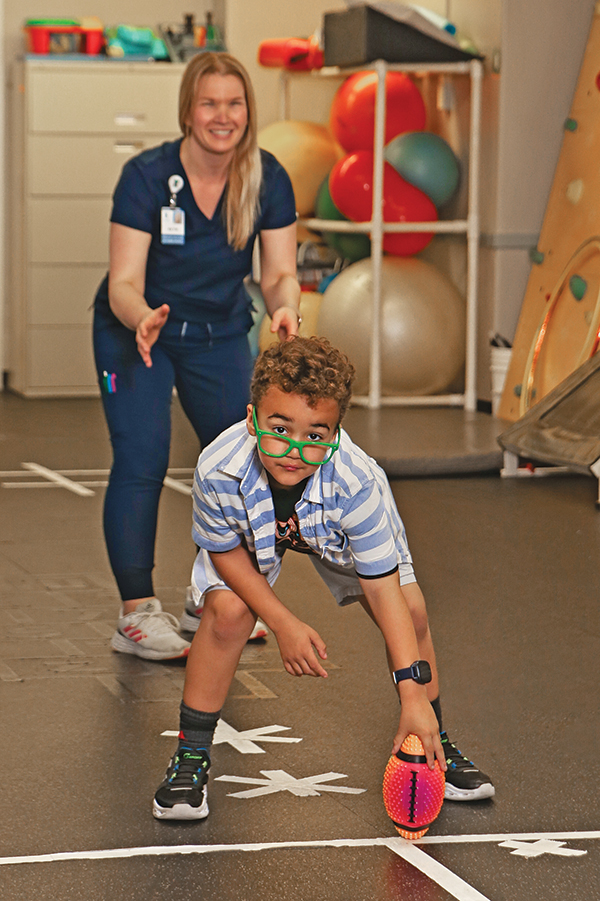
A couple of dedicated professionals at FHN are improving their patients’ ability to communicate – and their quality of life – in many meaningful ways. Meet Beth Smith, MS, CCC-SLP and Kaitlin Enright, MS, CF-SLP who are all Speech-Language Pathologists at FHN Memorial Hospital.
Beth explains that the discipline of speech therapy tackles challenges that can occur from birth to old age. “It might be a developmental delay, a neurological incident, cancer of the head or neck, or a different condition or injury that brings patients to us,” she says. “For example, newborns or stroke patients may both encounter swallowing difficulties. Many people struggle with stuttering, dysphonia (hoarseness), cognitive issues, or articulation challenges. Autism can impact a child’s communication style. All of these individuals can benefit from speech therapy, and our team’s broad education and experience give us the skills to customize the best course of treatment for each patient.”

Kaitlin and Beth enjoy working with patients across a broad range of ages and diverse conditions. Kaitlin is especially drawn to her young patients, and has a bachelor’s degree in early childhood special education in addition to her master’s degree in speech-language pathology. “Our treatment often looks like play, but it is so much more,” she reveals. “We use games that involve touch and talk to encourage communication on a variety of levels, and each time we ‘play,’ it can help to improve the child’s turn-taking skills, expressive language skills, or production of certain sounds. Of course, parents are key to the plan and are often part of each session.”
Beth adds, “No matter the age, we work to make speech therapy as fun as possible, and lots of patients truly enjoy their sessions. It can take a lot of time, and we form some pretty close relationships along the way.”
The ability to make a difference in a patient’s life is what motivates Beth and Kaitlin … and they want people to know they can really help provide noticeable improvements for patients, as well as offer beneficial tools for caregivers. “It is never too late to come in,” stresses Beth.
"We have capabilities and resources that people may not be aware of, and they are often impressed with all the ways we can provide aid."
"If someone is curious about whether speech therapy can make a difference in their life, the first step is to ask for an assessment. Just talk to your primary care provider about a referral. You might be surprised at all the ways we help our patients eat better, drink better, speak more clearly, communicate more effectively, and generally reach a better quality of life.”